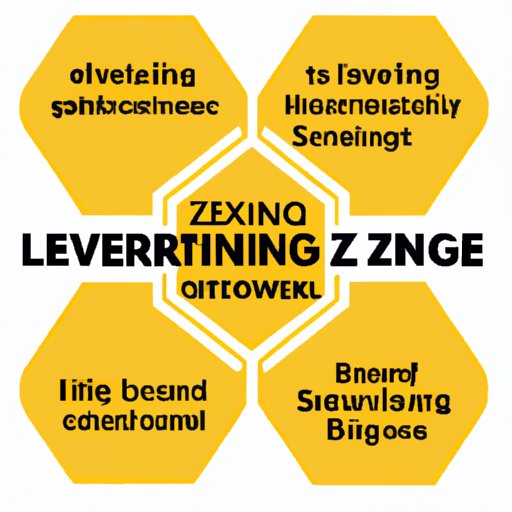
Introduction
What is service learning? It’s a term that’s been buzzing around in education circles for years, but many people still don’t know exactly what it means. At its core, service learning combines community service with academic learning, creating an opportunity for students to learn and grow while giving back to their communities. In this article, we’ll explore the meaning of service learning, its purpose, and the benefits it can bring to individuals and communities.

Service Learning: The Meaning Behind the Buzzword
Service learning is a type of experiential education that involves students in activities that address community needs while also strengthening their academic skills, such as critical thinking, problem-solving, and communication. Unlike traditional classroom learning, which often takes place in a controlled environment, service learning allows students to apply what they’re learning in real-world situations. Students engage in hands-on projects that help them make connections between what they’re learning in school and how they can use that knowledge to positively impact their communities.
While it can be similar to other types of learning initiatives like volunteerism or internships, what sets service learning apart is the focus on both the academic and service components. This approach allows for a more integrated and holistic learning experience that benefits both students and communities.
The concept of service learning has been around for centuries, rooted in early religious traditions like the Catholic concept of corporal works of mercy. In the United States, service learning gained popularity in the 1960s and 70s as part of the broader social justice movement. It has since evolved and expanded to encompass a broad range of activities and disciplines, from environmental conservation to healthcare outreach.
Why Service Learning Matters: A Deep Dive into its Purpose
At its core, the purpose of service learning is to create positive change by empowering individuals and communities. By participating in service learning projects, students can develop a deeper understanding of the challenges facing their communities and the ways they can make a difference. Service learning also helps to foster a sense of responsibility and civic engagement, encouraging students to take an active role in their communities.
For communities, service learning can provide valuable support for projects and initiatives that might otherwise go unfunded or understaffed. Student volunteers can bring fresh perspectives and creative ideas to ongoing challenges, while also gaining valuable experience and skills that can benefit them in their future careers.
Service learning can also have a positive impact on personal growth and development. By working with diverse groups of people and engaging in meaningful projects, students can develop empathy, compassion, and a sense of purpose that can benefit them throughout their lives.
Service Learning 101: Understanding the Basics
Service learning programs can vary widely in structure and requirements, but they typically involve a combination of community service work and related academic coursework. Students might work individually or as part of a group on projects like tutoring, environmental cleanup, or community outreach. In many cases, these projects are designed in collaboration with community partners, who can provide guidance and support throughout the process.
Participation in service learning programs may be voluntary or required as part of a course or degree program. Many colleges and universities offer service learning courses or programs, and there are also a variety of non-profit and community organizations that facilitate service learning opportunities for students of all ages.
Examples of successful service learning projects include mentoring and tutoring programs for at-risk youth, healthcare outreach in underserved communities, and environmental conservation and restoration projects.
The Benefits of Service Learning: What Your Community, and You, Can Gain from Volunteering
The benefits of service learning are many, both for communities and for individual participants. For communities, service learning can help to address critical issues and support important initiatives that might otherwise go unfunded or understaffed. It can also help to build stronger relationships between community members and organizations, fostering a sense of collaboration and shared purpose.
For individual participants, service learning can provide a wealth of benefits, including enhanced skills and knowledge that can be applied in future academic or career pursuits. By engaging in meaningful projects, students can develop a sense of purpose and accomplishment that can boost self-esteem and confidence. Service learning can also provide increased opportunities for networking and career advancement, as well as a deeper understanding of the social and political issues facing their communities.
The Importance of Reflection in Service Learning: How to Gain the Most from Your Experience
Reflection is an essential component of service learning, allowing participants to make sense of their experiences and develop deeper insights into their own values and priorities. By reflecting on their service learning experiences, students can gain a better understanding of themselves, their communities, and the broader world around them.
Strategies for effective reflection might include journaling, group discussions, or one-on-one conversations with mentors or advisors. Students might consider questions like: What did I learn from this experience? How did it impact me personally? What could I have done differently, and what would I do again? By taking the time to reflect on their experiences, students can gain a more complex and nuanced understanding of the issues they’ve encountered, as well as a clearer sense of their own strengths and weaknesses.
It’s also important to remember that mistakes and failures can be valuable learning opportunities in a service learning context. By reflecting on what went wrong and what could have been done differently, students can develop a better understanding of the challenges they’re facing and how they can adapt and adjust their approach moving forward.
How Service Learning Can Shape Your Career Path: Stories from Successful Professionals
Many successful professionals credit their service learning experiences as having a profound impact on their career paths. By engaging in meaningful projects and developing critical skills like communication, problem-solving, and leadership, participants can gain valuable experience that can be applied in a variety of fields.
Some potential career paths for service learning participants might include roles in non-profit organizations, community development, healthcare, or education. By engaging in service learning, students also gain a better understanding of the social and political contexts that shape their communities, which can be valuable in a wide range of fields.
Personal testimonies from successful professionals can provide valuable insight into the ways that service learning can shape career development and success. By learning from the experiences of others, students can gain a better understanding of the possibilities and challenges they might encounter in their own careers.
Breaking Down Barriers: How Service Learning Can Bring Communities Together
One of the most important benefits of service learning is its potential to break down barriers and bring diverse communities together. By working with people from different backgrounds and perspectives, participants can gain a richer understanding of the complex social and political factors that shape our world. Service learning programs can also help to foster a sense of collaboration and shared purpose, helping to build stronger and more resilient communities.
Examples of successful service learning programs that have facilitated community integration include initiatives that bring together people from different cultural or socioeconomic backgrounds to work on environmental conservation or healthcare projects. By providing a framework for shared goals and experiences, service learning can help to overcome divisions and promote understanding and dialogue among diverse groups.
Conclusion
Service learning is more than just a buzzword – it’s a powerful tool for positive change and personal growth. By engaging in community service projects that are integrated with academic coursework, students can gain valuable experience and skills while making a real difference in their communities. Through reflection and engagement, service learning can help to foster a sense of responsibility, compassion, and civic engagement that can benefit individuals and communities for years to come.
If you’re interested in getting involved in service learning, there are many ways to get started. Check with your school or university to see if they offer service learning programs or courses, or reach out to local non-profit or community organizations to learn about volunteer opportunities. With commitment and dedication, service learning can be a transformative experience that can make a lasting impact on your life and your community.




